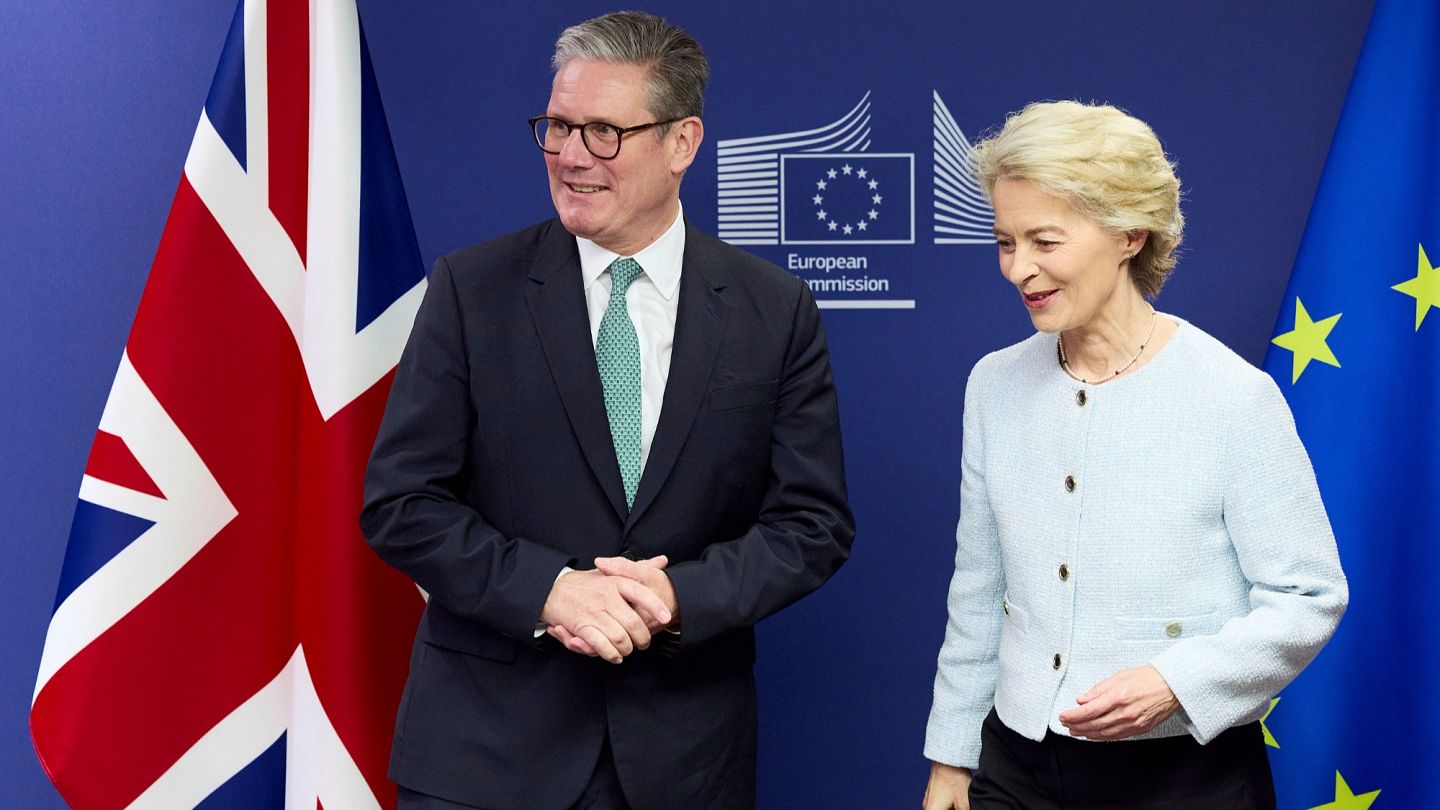The UK defense sector has called for a rapid security agreement with Brussels to gain access to EU funds.
The 150 billion euro fund proposed by the European Commission to increase defense spending across the EU will largely exclude British suppliers.
Calls have been made for a security agreement with the EU by early May to access a new European fund worth 150 billion euros (6.3 trillion TL) aimed at boosting defense spending from the UK defense sector. In a letter addressed to European Commission President Ursula von der Leyen and European Council President Antonio Costa, UK Prime Minister Keir Starmer states that the leaders of the UK's main aerospace, industrial, and technology associations believe that a security agreement should be one of the main outcomes of the "UK-EU summit" taking place in London on May 19. In his letter, Starmer expressed, "Such an agreement would be effective in creating a strong European industrial and technological base, promoting a pragmatic and inclusive EU defense ecosystem, and ensuring active participation of the UK industry in EU-led defense initiatives." The letter, accessed by Euronews, also included statements from the aerospace and defense trade association ADS, the British Chambers of Commerce, and TechUK, saying, "This would be a significant step towards enhancing Europe's collective security, industrial resilience, and global competitiveness." Starmer, who came to power last summer, had previously pushed for a security and defense pact that focused on greater collaboration on research and development (R&D), military mobility, missions, and operations across Europe. Since then, the Commission has presented a "Preparation 2030" plan to increase defense spending and joint procurement by 800 billion euros (33.5 trillion TL) over the next four years. The 150 billion euros (6.2 trillion TL) will be raised from the market and provided as loans under a condition referred to as European preference. This means that suppliers from non-EU countries that are not part of the single market or do not currently have a security agreement with the EU will only benefit if their contributions do not exceed just over a third of the purchased defense product. This situation applies to British and Turkish producers, while manufacturers from Norway and Iceland can already participate fully. A security agreement requires the unanimous approval of all 27 member states, but some countries, like France, have already signaled that they want such a partnership to be included in a broader restructuring of relations, returning to the mindset of "nothing is agreed until everything is agreed" from Brexit. Among the issues that Brussels and London still need to finalize are fisheries, citizens' rights, youth mobility, and plant health regulations. The current fisheries regulations will expire in June 2026. In a statement accompanying the letter, British Chambers of Commerce Vice President Peter Bell said, "Given the security context in Europe, it is essential that the UK and the EU secure an agreement with robust industrial dimensions on defense and security at the upcoming summit. Negotiations cannot be prolonged by bargaining over less critical issues." Kevin Craven from ADS stated, "The longer this process takes, the less likely we are to respond to emerging security threats, despite having the capability, political will, and moral duty to do so." The UK Cabinet Office, reached by Euronews, stated that next month's summit "will cover a range of UK-EU issues while trying to develop a stable, positive, and forward-looking relationship." The office added, "The UK is in a leading position to enhance the continent's defense and security, and we are ready to negotiate a Security and Defense Partnership Agreement with the EU." The European Commission had not responded to the request for comment at the time of publication. According to the Financial Times, last week the UK, along with EU member states, raised plans to create a supranational rearmament fund that includes centralizing defense procurement to borrow from capital markets and reduce costs. Meanwhile, Poland also presented a similar proposal for discussion at a meeting of EU finance ministers this week. The "European Defense Mechanism" (EDM) for defense-related loans will also allow participation from non-EU countries like the UK, Norway, or Switzerland.


